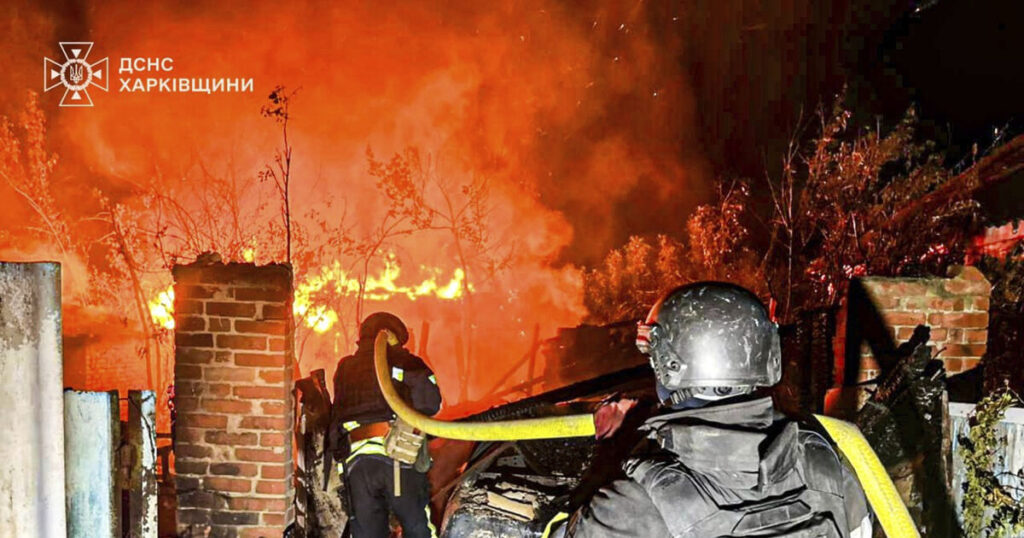Overnight, Russia launched a barrage of attacks on four Ukrainian cities, injuring at least 15 people. The attacks primarily targeted energy infrastructure.
This latest escalation in Russia’s aerial campaign against civilian areas occurs before a September 2nd deadline set by U.S. President Donald Trump for Russia to reach a peace agreement in the three-year war. Failure to do so could result in severe sanctions from Washington.
A date for a potential third round of direct peace talks between Russian and Ukrainian delegations has not been publicly announced. The previous two rounds yielded no progress beyond prisoner exchanges.
According to the Ukrainian air force, Russia deployed 400 Shahed and decoy drones, along with one ballistic missile, during the night.
The strikes targeted Kharkiv, Ukraine’s second-largest city in the northeast; Kryvyi Rih, President Volodymyr Zelenskyy’s hometown in central Ukraine; Vinnytsia in the west; and Odesa in the south.
“Russia does not change its strategy,” stated Mr. Zelenskyy. “To effectively counter this terror, we need a systemic strengthening of defence: more air defence, more interceptors, and more resolve so that Russia feels our response.”
Mr. Trump has pledged to provide Ukraine with more weapons, including crucial Patriot air defence systems, and has threatened to impose further sanctions on Russia.
This represents his strongest stance against Russian President Vladimir Putin since returning to the White House nearly six months ago.
However, some U.S. lawmakers and European government officials have expressed concerns that the 50-day deadline might allow Mr. Putin to seize more Ukrainian territory before any resolution to the conflict is reached.
Previous ultimatums from the U.S. to Mr. Putin in recent months have failed to deter the Russian leader from continuing the invasion of Ukraine.
The war has resulted in the deaths of tens of thousands of soldiers, many along the 620-mile front line. Russian attacks on cities have also killed over 12,000 Ukrainian civilians, according to the United Nations.
The Institute for the Study of War, a Washington think tank, stated on Tuesday that “Putin holds a theory of victory that posits that Russia can achieve its war aims by continuing to make creeping gains on the battlefield indefinitely and outlasting Western support for Ukraine and Ukraine’s ability to defend itself”.
Mr. Trump has indicated the U.S. is providing additional weapons to Ukraine, but emphasized that European countries are financing them. While Ukrainian and European officials welcomed the U.S. commitment after months of uncertainty, some expressed hope that Washington would share some of the financial burden.
“We welcome President Trump’s announcement to send more weapons to Ukraine, although we would like to see the US share the burden,” said European Union foreign policy chief Kaja Kallas on Tuesday. “If we pay for these weapons, it’s our support.”


